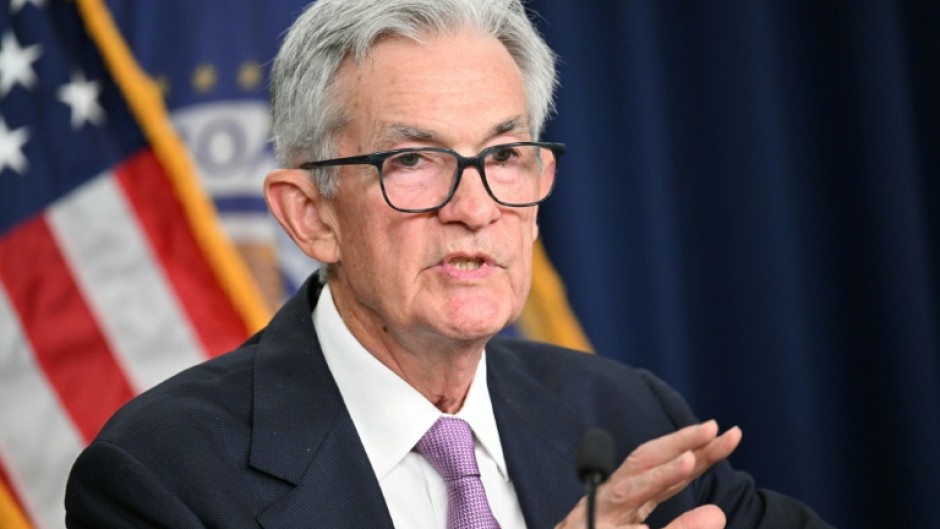Global stock markets rallied Thursday, with Frankfurt hitting a record close, after the Federal Reserve delivered a bumper interest-rate cut and pledged further reductions as inflation cools.
Wall Street shares bounced at the open after falling the previous day even though the Fed delivered a 50-basis-point rate reduction that many investors had hoped for and was double the size some had predicted.
The aggressive cut split opinion among analysts, with some warning it could reignite inflation, while others said it showed the bank was keeping ahead of the curve in supporting the economy.
"The rate cut seen and heard around the world yesterday has fostered quite the response today -- even though it was initially met with some stifled enthusiasm yesterday," said Patrick O'Hare, market analyst at stock analysis firm Briefing.com.
Two hours into trading in New York, the Dow had gained more than one percent, the broad-based S&P 500 soared 1.7 percent and the tech-heavy Nasdaq surged 2.7 percent.
Frankfurt closed with a 1.6 percent gain and a record close of 19,002.38 points after setting a record session high of 19,044.96
Paris ended up 2.3 percent after its strongest session since January.
London's FTSE 100 index closed up 0.9 percent, paring back some gains after the Bank of England held its own rate steady, as expected.
The pound hit a more than two-year high against the dollar before easing back.
Tokyo and Hong Kong closed around two percent higher.
"Global markets had been on edge ahead of the Fed decision, but... have seen a solid recovery in risk appetite" thereafter, said Chris Beauchamp, chief market analyst at online trading platform IG.
The US central bank on Wednesday lowered borrowing costs for the first time since the start of the Covid pandemic by opting for a reduction of 50 basis points rather than 25 as some had forecast.
The bank's "dot plot" guidance indicated more sizeable easing over the next two years.
Fed boss Jerome Powell said the economy was in "good shape", pointing to lower inflation and solid growth.
"The labour market is in a strong place. We want to keep it there," he told reporters.
Beauchamp said Powell "seems to have convinced investors that the recent weakness in jobs data was no reason to be concerned".
But David Morrison, analyst at financial services provider Trade Nation, said "some will be asking why a 50 bps cut was warranted at this time, given the underlying strength of the US economy".
"Sentiment is fickle, and as we've just seen, markets can turn sharply," he said.
Fawad Razaqzada, market analyst at City Index and FOREX.com, said the half-point US cut was being "seen as a bold but necessary step to ease economic concerns without sending panic signals reminiscent of the 2008 financial crisis."
The Bank of England on Thursday held its rate at five percent, avoiding a second reduction in a row after having delivered its first cut in August.
BoE governor Andrew Bailey said the central bank needed "to be careful not to cut too fast or by too much", as UK inflation stays above its target.
Norway's central bank also opted to keep its policy rate unchanged, holding it at a 16-year high and warning that the first cut would only come in the first quarter of 2025.

